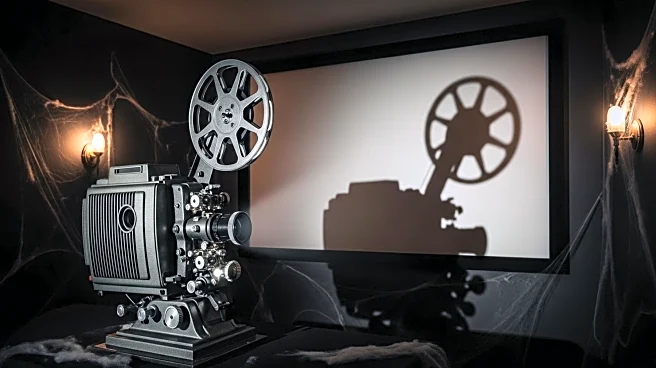What's Happening?
Donna Langley, NBCUniversal Chairman of Entertainment & Studios, addressed the evolving landscape of the film industry at the Toronto International Film Festival (TIFF). She highlighted a significant shift in audience preferences, particularly towards the horror genre. Langley noted that films like 'Nosferatu' and others from competitors such as Warner Bros and NEON have demonstrated a growing interest in horror, driven by auteur directors. This shift reflects broader changes in post-pandemic viewing habits, with audiences seeking unique and reflective narratives. Langley also discussed the importance of large format screens, like Imax, in attracting younger audiences, who are willing to pay a premium for enhanced viewing experiences. She emphasized the role of original storytelling in Universal's success, citing the example of Christopher Nolan's 'Oppenheimer', which grossed $975.8 million.
Why It's Important?
The shift in audience tastes towards horror and unique storytelling has significant implications for the film industry. It suggests a move away from traditional four-quadrant films towards more niche and genre-specific content. This trend could influence how studios allocate budgets and resources, potentially leading to more investments in original and auteur-driven projects. The emphasis on large format screens also highlights a demand for premium viewing experiences, which could drive changes in theater infrastructure and ticket pricing strategies. Studios that adapt to these trends may gain a competitive edge in attracting younger, more discerning audiences.
What's Next?
As audience preferences continue to evolve, studios may increasingly focus on developing original content and exploring diverse genres. The competition for large format screens is likely to intensify, with studios vying for prime slots to maximize box office returns. Additionally, the success of films like 'Oppenheimer' could encourage more collaborations with visionary directors, potentially leading to a renaissance of high-quality, original cinema. The industry may also see a rise in marketing strategies targeting the 'Letterboxd generation', cinephiles who engage deeply with film content.
Beyond the Headlines
The rise of horror and original storytelling could have cultural implications, reflecting societal anxieties and desires for introspective narratives. This trend may also influence the types of stories being told, with filmmakers exploring themes that resonate with contemporary audiences. The focus on premium experiences could lead to a reevaluation of the traditional cinema model, with theaters offering more immersive and technologically advanced screenings to meet consumer expectations.









